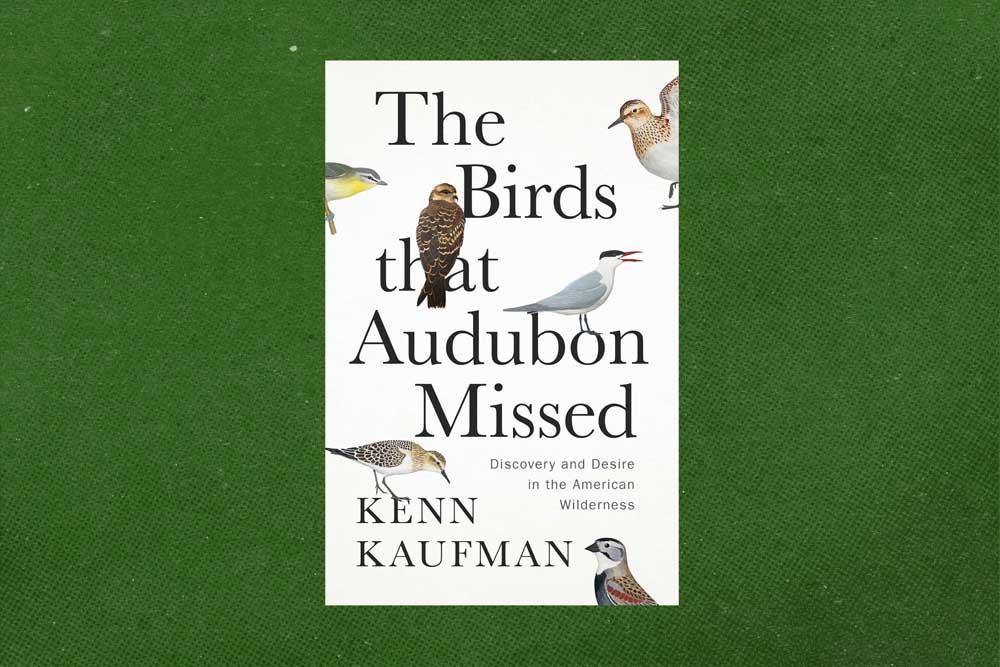Book review: Audubon was flawed, should he get credit for his good work?
Published 9:00 pm Saturday, May 4, 2024

- books-kaufman
For better and worse, the name Audubon has become almost synonymous with birds. The reason, of course, is John James Audubon, whose “Birds of America” project, published from 1827 to 1838, catalogued more than 400 birds in life-size prints. The works captured the avian world in a breadth and detail never before seen, turning its French American creator into a celebrated naturalist.
In recent years, questions have been raised about Audubon’s legacy, starting with the ethics of his work — the Audubon Society has conceded that he “most certainly committed” plagiarism and academic fraud. He also was an enslaver and a critic of emancipation, and sent stolen human remains to an anthropologist who used them to study racial differences.
Trending
Given this complicated biography — ably explored by naturalist Kenn Kaufman in his new book, “The Birds That Audubon Missed: Discovery and Desire in the American Wilderness” — should Audubon still get “credit for the good work he did, while acknowledging all that was wrong?” Kaufman asks.
Many conservation organizations are asking that question too and arriving at dissonant conclusions about whether to keep the Audubon name. Similar controversy surrounds the names of birds themselves. For instance, Scott’s oriole was named in 1854 after Gen. Winfield Scott, who had nothing to do with ornithology but plenty to do with the Trail of Tears, the genocidal forced relocation of Native Americans over which he presided.
His book is a must-read for birders curious about so much that lies hidden behind the names in our pastime; it illuminates the personalities, rivalries and shortcomings of the men (no women) of European ancestry (no others need apply) who set out to outdo one another and make a name for themselves by finding and naming birds — and why some birds were overlooked in the process.
“The Birds That Audubon Missed” isn’t a dry history; it’s as alive as the birds it describes, thanks to the personal aspect Kaufman weaves into the narrative. In addition to offering his own birding adventures as a living-color counterpoint to the past, Kaufman, best known for his field guides and other books such as “A Season on the Wind” (2019), scatters illustrations through the text — some are by Audubon and some are by Kaufman, who boldly attempts to create new paintings in the style of Audubon. The effort highlights just how much Kaufman longs to feel something of what these naturalists of yesteryear experienced. That is where “The Birds That Audubon Missed” excels; the real beauty of the book is expressed in its subtitle, in the moments when Kaufman gives in to that longing for discovery and whispers of desire:
“When I watch a flock of sandpipers lift off from a coastal lagoon and climb into the sky, it lifts my soul — not only because of the beauty of their flight, but also because I know they might not touch down for a thousand miles. Scientific knowledge of the migrations of these birds, based on years of research, doesn’t take away from the sense of magic; it makes it stronger.”
The fundamental — and unavoidable — problem with “The Birds That Audubon Missed” lies in its “great white men” focus. Kaufman acknowledges from the outset, and mentions occasionally throughout, that this is a particular brand of history stemming from a time that minimized, ignored and discounted anything that didn’t originate from an extremely narrow band of humanity. Indeed, that constitutes one of the criticisms of eponymous bird names. White explorers took credit for “discovering” birds that may have been well known to Indigenous people and then slapped some White friends’ or patrons’ names on them; some of these names we blithely continue to use.
Trending
Kaufman does an admirable job of exploring the history that’s before us. He didn’t set out to render a verdict on the naming controversies, but he does answer his own question: If we can move beyond hagiography, we can at least acknowledge what Audubon did, for good and ill. And if, as some claim, losing the names means erasing history, then Kaufman’s book is one way to cure this alleged amnesia.








